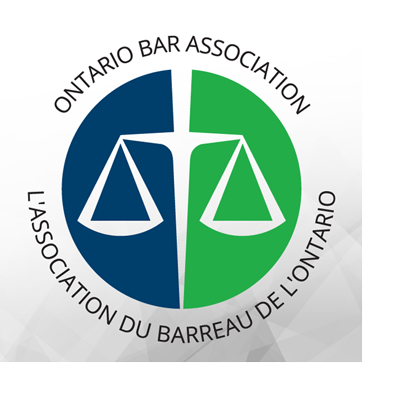PUBLIC AFFAIRS CASE STUDIES
CORPORATE SOCIAL RESPONSIBILITY CASE STUDY – ONTARIO BAR ASSOCIATION LEGAL CAPACITY BUILDING TO THE PALESTINIAN AUTHORITY
 GCA members worked with the Ontario Bar Association in providing legal and civil police capacity building to the Palestinian Authority (PA) from 2008-2012. Judges and lawyers from Canada provided knowledge and skills transfer resulting in the creation of a new arrest and detention policy as well as a municipal courts in cities in the West Bank/Palestine.
GCA members worked with the Ontario Bar Association in providing legal and civil police capacity building to the Palestinian Authority (PA) from 2008-2012. Judges and lawyers from Canada provided knowledge and skills transfer resulting in the creation of a new arrest and detention policy as well as a municipal courts in cities in the West Bank/Palestine.
CONCEPT:
Senior Judges from Ontario Canada became mentors for Palestinian Legal trainers and practitioners. Series of workshops and simulations carried out over a year long period with additional lecture series for Palestinian experts in Canada Invite select media to sneak peek event and host interviews with the store designerOUTCOME:
The Bar Association supported the Public Prosecution Service of the Palestinian Authority since 2009 by providing equipment, technical assistance and legal training, and has established specialized units on gender equality and human rights at the Office of the Attorney General and Public Prosecution Service. Canada’s support has contributed to promoting a fair and effective criminal justice system that protects human rights.PUBLIC AFFAIRS ENGAGEMENT – DOLPHIN ENERGY ANTI-CORRUPTION STRATEGY
 A GCA expert was the lead in developing a comprehensive anti-corruption framework for Dolphin Energy based in Abu Dhabi. This framework forms the basis for all ethical and anti-corruption policies and procedures within the company and has resulted in Dolphin Energy being a leader in anti-corruption and accountability.
A GCA expert was the lead in developing a comprehensive anti-corruption framework for Dolphin Energy based in Abu Dhabi. This framework forms the basis for all ethical and anti-corruption policies and procedures within the company and has resulted in Dolphin Energy being a leader in anti-corruption and accountability.
CONCEPT:
Design, and development of a comprehensive anti-corruption framework for Dolphin Energy including Code of Conduct and Fraud Control Policy.OUTCOME:
Dolphin Energy has implemented one of the most comprehensive Accountability and anti-corruption policy frameworks in the GCC including a commitment to fraud controls, leading Health and Safety policies social responsibility across their scope of operations. Today, Dolphin Energy is considered one of the most transparent and resilient energy companies in the region.ISSUES MANAGEMENT AND CRISIS COMMUNICATIONS– CANADA AND THE DEATH PENALTY
 GCA’s leader in Public Affairs was instrumental in developing a crisis response strategy to intensive media scrutiny and overcoming media misperception of Canada’s position with respect to the death penalty. Canada was accused by media of allowing a Canadian citizen to face the death penalty in the US even though Canadian policy is to oppose the death penalty as a form of justice.
GCA’s leader in Public Affairs was instrumental in developing a crisis response strategy to intensive media scrutiny and overcoming media misperception of Canada’s position with respect to the death penalty. Canada was accused by media of allowing a Canadian citizen to face the death penalty in the US even though Canadian policy is to oppose the death penalty as a form of justice.
CONCEPT:
Respond to intense media inquiries and media misperception about Canada’s policy regarding capital punishment. Perception was that Canada was willing to change its position to ensure ongoing commercial relationships with the United States. A strategic response program was developed including daily media responses tailored for all relevant stakeholders, a pro-active content implementation strategy to overturn negative perception of Canada’s position, and an international advocacy framework to re-assure Canada’s partners that its position had not changed.OUTCOME:
Despite an ongoing media barrage and gradual erosion of public confidence in Canada’s positions on capital punishment, the crisis response strategy enabled Canadian stakeholders within the government to minimize the loss of confidence with the public over a four week period in which the crisis occurred.. Maintaining public confidence as well as international partner perceptions was crucially important as the government at the time was facing the possibility of a no-confidence motion resulting in the government’s potential collapse.GOVERNMENT RELATIONS– BLACKBERRY IN THE UAE
 GCA Public Affairs experts provided government relations support and advice regarding telecommunications access to the UAE market for Blackberry in 2010. This involved negotiating a memorandum of understanding between the UAE government and Blackberry to ensure UAE government authorities access to Blackberry services because of UAE national security requirements. Government relations support included dialogue and outreach with UAE government authorities; strategy and tactics to ensure a maximum negotiated outcome for Blackberry while respecting the UAE government requirements; and, networking analysis and decision-maker influencing.
GCA Public Affairs experts provided government relations support and advice regarding telecommunications access to the UAE market for Blackberry in 2010. This involved negotiating a memorandum of understanding between the UAE government and Blackberry to ensure UAE government authorities access to Blackberry services because of UAE national security requirements. Government relations support included dialogue and outreach with UAE government authorities; strategy and tactics to ensure a maximum negotiated outcome for Blackberry while respecting the UAE government requirements; and, networking analysis and decision-maker influencing.
CONCEPT:
Design a strategic and tactical approach to critical negotiations on behalf of Blackberry regarding telecommunications access for the company in the UAE. The overall strategy, to be implemented over a 4 month period involved a combination of iterated negotiation tactics, background research and analysis, and a lobbying strategy.OUTCOME:
Because of the government relations framework devised by GCA experts, Blackberry successfully expanded their market access into the UAE while preserving their excellent relationship with UAE authorities. Blackberry was also able to preserve its core USP – the enhanced security protocols and integrity of the Blackberry Enterprise Server (BES).HAPPINESS AND WELLBEING - HAPPINESS 101 PROJECT (UNITED ARAB EMIRATES)
GCA team member, Dr. Louise Lambert, developed and introduced a 14-week positive psychology intervention (PPI) program to university students from 39 different nations studying in the United Arab Emirates. Students were exposed to 18 different PPIs. Pre, post, and 3-month post measures were taken assessing hedonic and eudaimonic wellbeing, and beliefs regarding the fear and fragility of happiness. After 14 weeks, relative to a control group, participants exposed to the Happiness program reported higher levels of hedonic and eudaimonic wellbeing, and lower levels of fear of happiness and the belief that happiness is fragile. Boosts in life satisfaction and net-positive affect, and reduction of fear of happiness and the belief that happiness is fragile were maintained 3 months post-intervention. This work is an example of the effective implementation of positive psychology interventions in an educational context. The results were published in the peer-reviewed academic journal, Journal of Happiness Studies.